Mar 27, 2018 | Non categorizzato, Word of
for ages 4-8 | for ages 9-17 | Print | Audio
These words are part of a long dialogue Jesus had with the crowd around him. They had seen the sign that he had performed in the multiplication of the loaves and followed him, perhaps just wanting more material help. Starting from their immediate needs, Jesus gradually brings the conversation around to his mission: he was sent by the Father to give humanity true life, eternal life, which is the life of God himself, who is Love. As Jesus walked along the roads of Palestine, he took an interest in all the people he met, not shying away from their requests for food, water, healing and forgiveness. On the contrary, he met all their needs and gave hope to everyone. That is why he could then ask all who heard him to take a further step, to accept the life he offered, to be in relationship with him, trust him and believe in him. Commenting on this sentence of the Gospel, Chiara Lubich wrote in the magazine Città Nuova in 1991: “Here, Jesus responds to people’s deepest aspirations. They have been created for life and seek life with all their strength. But their great mistake is to look for it in other people and in things that, being limited and passing, cannot give a genuine answer to their aspirations … Only Jesus can satisfy their hunger. Only he can give life without end, for he is the Life.” “Very truly, I tell you, whoever believes has eternal life.” Christian faith is primarily the fruit of a personal encounter with God, with Jesus, who wants nothing more than to have us share in his very own life. Faith in Jesus means following his example of not being wrapped up in ourselves, in our fears and limited plans, but rather to focus our attention on the needs of others. They may have real needs arising from poverty, illness and marginalization, and above all they need to be listened to, accepted and welcomed. In this way, through the life we are living, we will be able to share the love we have received as a gift from God with others. To strengthen us on our journey, he has also left us the great gift of the Eucharist, a sign of a self-giving love that enables others to live. “Very truly, I tell you, whoever believes has eternal life.” Often, during the day, we place our trust in people around us. It may be the teacher who teaches our children, the taxi driver who takes us to our destination, the doctor who treats us … We cannot live without trust, and trust is increased by knowing one another, through friendship, by a relationship deepened over time. How then can we live the Word of Life this month? Continuing her commentary, Chiara invited us to renew our complete choice of Jesus: “We already know how to do this by putting his words into practice with fresh commitment. His words remind us of many specific aspects of life. For example, are we meeting a neighbor? ‘You shall love your neighbor as yourself’ (Mt 22:39). Are we suffering? ‘If any want to become my follower … then they should take up their cross’ (Mt 16:24), and so on. “If we do so, the words of Jesus will be a source of light, and he will come to us with his truth, his strength and his love. Our life will become more and more life with him, doing everything with him. We will no longer be afraid even of the physical death that awaits us all, because with Jesus true life has already begun in us, the life that never ends.” Letizia Magri
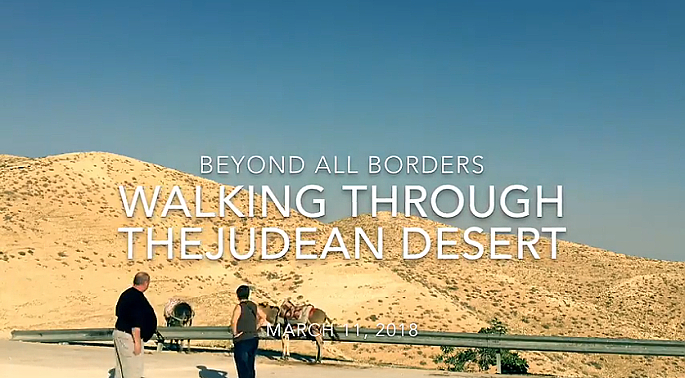
Mar 26, 2018 | Focolare Worldwide

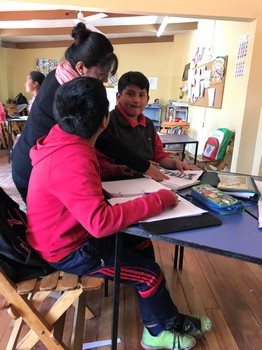
Mar 25, 2018 | Focolare Worldwide
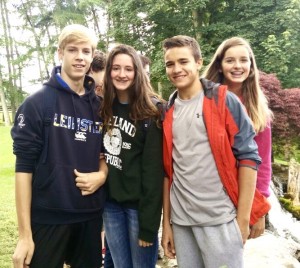 Green and friendly Ireland is full of excellent schools for students of all ages to learn English. Language Learning International (LLI) is no exception. Various kinds of study vacations are available with cutting edge learning techniques, family programs, culture, sport and entertainment, along with internships in France and Spain for Irish students. What distinguishes the educational approach of this school, which was founded in 1989 by Eugene Murphy in Dublin, is the quality of the relationships with the students in a welcoming atmosphere and a sensitive look towards the personal characteristics of each individual. But there is something else. The LLI, with its over 2 thousand students every year, is a representative of the Economy of Communion (EoC) in the training sector. The following experiences were drawn from the EoC website. “A boy showed up at summer camp with Asperger Syndrome, which we didn’t know anything about until he arrived. The first lodgings were not very appropriate for him, because they weren’t able to meet the particular needs of the youngster. They tried moving him to another family, but the difficulties began again. Even though the summer is a very intense season, in the business we want to be sure to ensure just and serene treatment for anyone comes, so we looked for another alternative until we were able to find an elderly woman who was happy to host the boy, being very familiar herself with the syndrome that her grandson also suffered from. Everything turned out positive for everyone: The student was able to take full advantage of the experience and return home happy in the evening. And the person in charge of relations with the family declared that the presence of the boy in the program had filled the entire season with value!” “Great atmosphere at the English course, in the classroom and excellent relationships established; one of the tests to be prepared, however, was an individual oral presentation. Suddenly a 15-year-old boy approached Eugene Murphy, the school’s founder and expert trainer. He told her that he would be unable to do it because of his stuttering. Eugene talked to other trainers and they decide to reassure the boy by doing the test privately. In the end, the teachers encouraged him to share the experience with others anyway, the young man agreed and, between his own emotion and the general emotion, the test concluded with a long applause from the class. It was then discovered that the boy had not spoken until the age of 7 and that performance in public turned out to be a sort of miracle that made him and his parents incredibly joyful”.
Green and friendly Ireland is full of excellent schools for students of all ages to learn English. Language Learning International (LLI) is no exception. Various kinds of study vacations are available with cutting edge learning techniques, family programs, culture, sport and entertainment, along with internships in France and Spain for Irish students. What distinguishes the educational approach of this school, which was founded in 1989 by Eugene Murphy in Dublin, is the quality of the relationships with the students in a welcoming atmosphere and a sensitive look towards the personal characteristics of each individual. But there is something else. The LLI, with its over 2 thousand students every year, is a representative of the Economy of Communion (EoC) in the training sector. The following experiences were drawn from the EoC website. “A boy showed up at summer camp with Asperger Syndrome, which we didn’t know anything about until he arrived. The first lodgings were not very appropriate for him, because they weren’t able to meet the particular needs of the youngster. They tried moving him to another family, but the difficulties began again. Even though the summer is a very intense season, in the business we want to be sure to ensure just and serene treatment for anyone comes, so we looked for another alternative until we were able to find an elderly woman who was happy to host the boy, being very familiar herself with the syndrome that her grandson also suffered from. Everything turned out positive for everyone: The student was able to take full advantage of the experience and return home happy in the evening. And the person in charge of relations with the family declared that the presence of the boy in the program had filled the entire season with value!” “Great atmosphere at the English course, in the classroom and excellent relationships established; one of the tests to be prepared, however, was an individual oral presentation. Suddenly a 15-year-old boy approached Eugene Murphy, the school’s founder and expert trainer. He told her that he would be unable to do it because of his stuttering. Eugene talked to other trainers and they decide to reassure the boy by doing the test privately. In the end, the teachers encouraged him to share the experience with others anyway, the young man agreed and, between his own emotion and the general emotion, the test concluded with a long applause from the class. It was then discovered that the boy had not spoken until the age of 7 and that performance in public turned out to be a sort of miracle that made him and his parents incredibly joyful”.  LLI Director, Cathy Young, tells about a new project that has involved the school in an adventure of openness with a geographic region that is quite far from Ireland: “We wanted to undertake a Economy of Communion project that focused on education. On the United World Association website, we learned of a fantastic project in Bolivia, called Fondazione Unisol, which offers support to several of the poorest families in Cochabamba. We made contact and have put together a project that will finance the purchase of new books and portable computers, furnish new desks and chairs for classrooms, and support the work of two teachers”. “This reciprocal exchange,” says Cathy, “is one of the most beautiful aspects of our collaboration, and it helps us to live better in our daily work environment.” At LLI the students have a live learning experience of the meaning of many words, but the first is sharing. Chiara Favotti
LLI Director, Cathy Young, tells about a new project that has involved the school in an adventure of openness with a geographic region that is quite far from Ireland: “We wanted to undertake a Economy of Communion project that focused on education. On the United World Association website, we learned of a fantastic project in Bolivia, called Fondazione Unisol, which offers support to several of the poorest families in Cochabamba. We made contact and have put together a project that will finance the purchase of new books and portable computers, furnish new desks and chairs for classrooms, and support the work of two teachers”. “This reciprocal exchange,” says Cathy, “is one of the most beautiful aspects of our collaboration, and it helps us to live better in our daily work environment.” At LLI the students have a live learning experience of the meaning of many words, but the first is sharing. Chiara Favotti
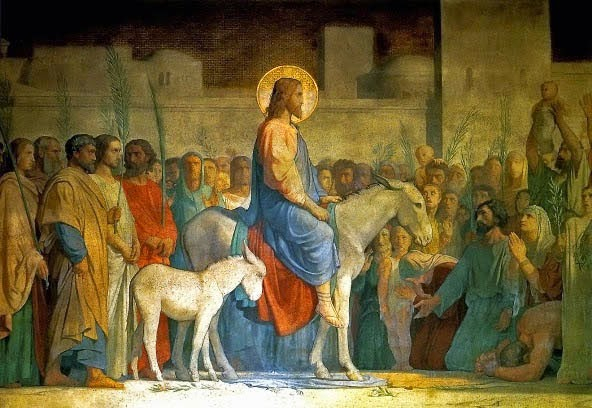
Mar 24, 2018 | Non categorizzato
 “In you, O Lord, I take refuge, I will never be put to shame” (Ps 71:1). This is how the already seriously ill bishop, Klaus Hemmerle, began his last homily at the Dome Church of Aachen, Germany. It was late 1993. “God, you hold me with your strength just as I am. God, you hold the world just as it is. God, you hold this neighbor with your strength just as he is.” To be held up by this God who descended in the kenosis, who stripped himself of everything and took on the form of a slave – this is the only way that the door of hope can be reopened in us: welcoming Him who first welcomed us, letting ourselves be carried by Him. Believing that we are held up by Him: This is the eye of the needle through which we receive the thread of hope that is slipped through it. This God can truly give us hope. This is where our Church with all its errors and weaknesses, with all its requests and its too large and too small challenges, can be something extraordinary: a community of people that believe in the fact that they have been welcomed and supported, a community of people that support one another, in which each one holds up the other.” From “Klaus Hemmerle, innamorato della Parola di Dio” – Città Nuova Ed, 290-291.
“In you, O Lord, I take refuge, I will never be put to shame” (Ps 71:1). This is how the already seriously ill bishop, Klaus Hemmerle, began his last homily at the Dome Church of Aachen, Germany. It was late 1993. “God, you hold me with your strength just as I am. God, you hold the world just as it is. God, you hold this neighbor with your strength just as he is.” To be held up by this God who descended in the kenosis, who stripped himself of everything and took on the form of a slave – this is the only way that the door of hope can be reopened in us: welcoming Him who first welcomed us, letting ourselves be carried by Him. Believing that we are held up by Him: This is the eye of the needle through which we receive the thread of hope that is slipped through it. This God can truly give us hope. This is where our Church with all its errors and weaknesses, with all its requests and its too large and too small challenges, can be something extraordinary: a community of people that believe in the fact that they have been welcomed and supported, a community of people that support one another, in which each one holds up the other.” From “Klaus Hemmerle, innamorato della Parola di Dio” – Città Nuova Ed, 290-291.
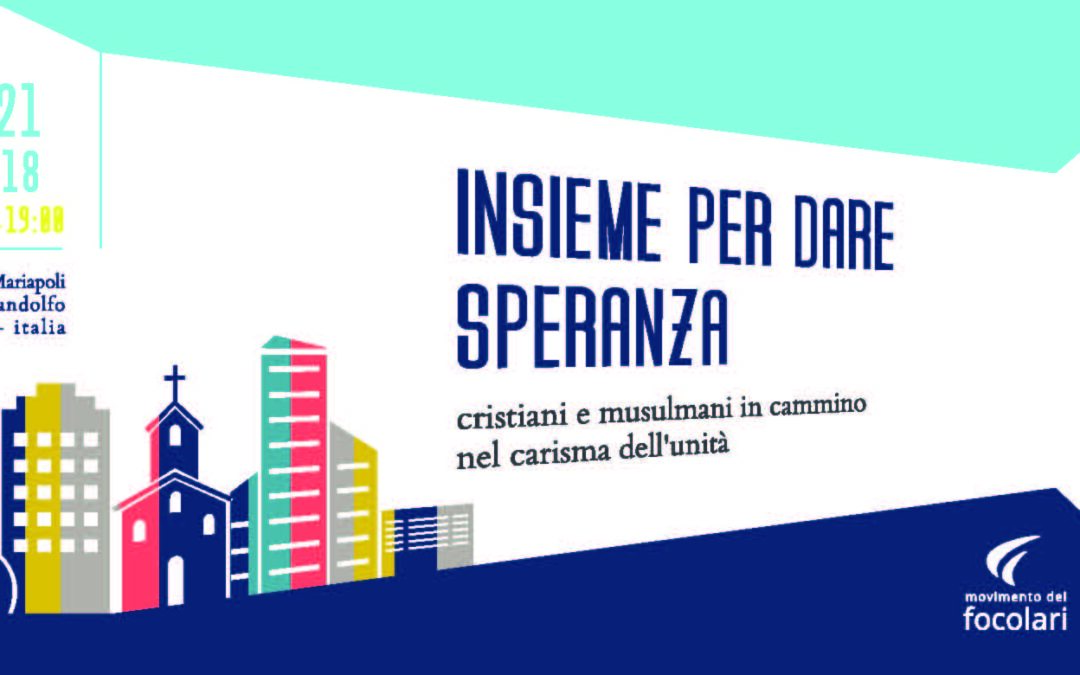
Mar 23, 2018 | Non categorizzato
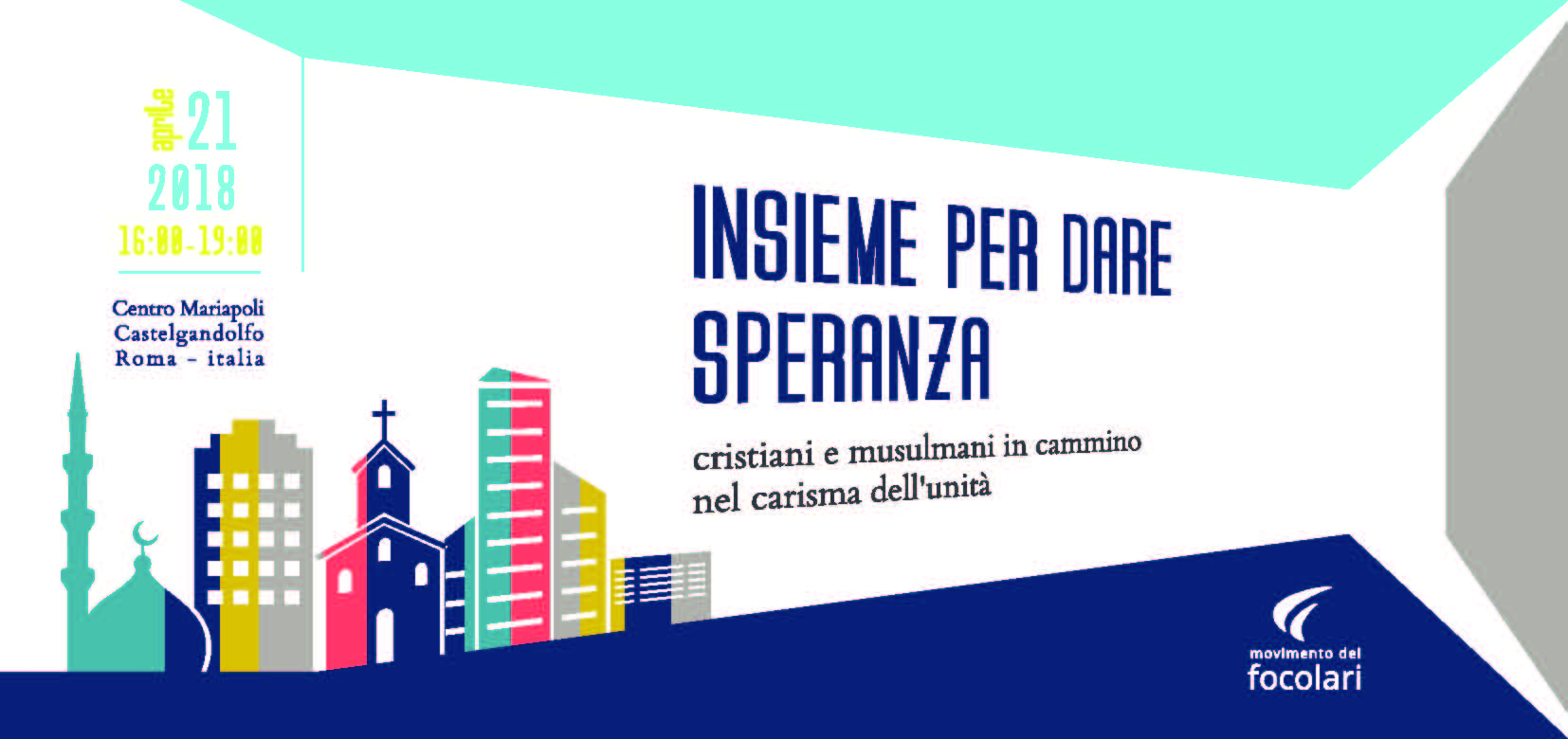 Christians and Muslims on the march, in the charism of unity “What is impossible to thousands of isolated and divided individuals, seems to become possible for people who have made mutual love, mutual understanding and unity the essential motive of their life.” (Chiara Lubich to a group of Muslims, December 7, 2002 in Madrid, Spain) Promoted by the Focolare Movement’s Centre for Interreligious Dialogue, an open gathering will be held on the afternoon of April 21, 2018, from 16:00 until 19:00. The event will take place within the context of some days of sharing between Muslims and Christians which has grown into very solid dialogue and fraternity. Reflections and experiences will be offered from around the world that began and developed within the light of Chiara Lubich’s charism of unity. The common hope is to offer some glimpses of hope inside the complex and often painful situations today’s world is going through. The event will take place at the Mariapolis Centre of Castelgandolfo, Italy. For information: congressoaprile18@focolare.org
Christians and Muslims on the march, in the charism of unity “What is impossible to thousands of isolated and divided individuals, seems to become possible for people who have made mutual love, mutual understanding and unity the essential motive of their life.” (Chiara Lubich to a group of Muslims, December 7, 2002 in Madrid, Spain) Promoted by the Focolare Movement’s Centre for Interreligious Dialogue, an open gathering will be held on the afternoon of April 21, 2018, from 16:00 until 19:00. The event will take place within the context of some days of sharing between Muslims and Christians which has grown into very solid dialogue and fraternity. Reflections and experiences will be offered from around the world that began and developed within the light of Chiara Lubich’s charism of unity. The common hope is to offer some glimpses of hope inside the complex and often painful situations today’s world is going through. The event will take place at the Mariapolis Centre of Castelgandolfo, Italy. For information: congressoaprile18@focolare.org
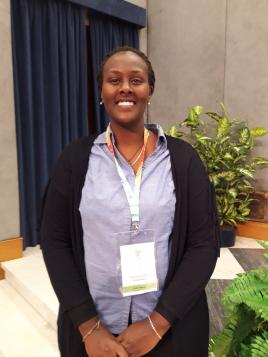
Mar 23, 2018 | Non categorizzato
 “I saw in the Pope, enthusiasm in listening. He asked us to speak up with courage, with no filters, freely, and this is what we do. The Church is at our disposal, and we are certain that the Synod in October will bear many fruits.” Stella Nishimwe comes from Burundi, is a member of the Focolare Movement, and represents her country in the pre-Synodal assembly. “I was struck by what Pope Francis said yesterday. He’s a special person who lives with the people of God and really knows the reality of the world. Together with the population he wishes to seek solutions, starting from the aspects of life. From the Synod, I expect a new path of the Church with the youth will arise, where the young people will feel the common responsibility in the progress of the Church.” Nishimwe then spoke of the conditions of the young people in her country: “They live in poverty, in the uncertainty of the future, with an elevated unemployment. With this Synod I see a Church that listens, walks with us, shares the difficulties which the youth undergo in different countries, under contexts of war, poverty and unemployment. These situations will be difficult to change, but at least we can try together and in so doing experience what it means to be a Church, a sole family.” Fonte: SIR https://www.agensir.it/quotidiano/2018/3/20/pre-sinodo-giovani-nishimwe-burundi-ho-visto-nel-papa-lentusiasmo-dellascolto/
“I saw in the Pope, enthusiasm in listening. He asked us to speak up with courage, with no filters, freely, and this is what we do. The Church is at our disposal, and we are certain that the Synod in October will bear many fruits.” Stella Nishimwe comes from Burundi, is a member of the Focolare Movement, and represents her country in the pre-Synodal assembly. “I was struck by what Pope Francis said yesterday. He’s a special person who lives with the people of God and really knows the reality of the world. Together with the population he wishes to seek solutions, starting from the aspects of life. From the Synod, I expect a new path of the Church with the youth will arise, where the young people will feel the common responsibility in the progress of the Church.” Nishimwe then spoke of the conditions of the young people in her country: “They live in poverty, in the uncertainty of the future, with an elevated unemployment. With this Synod I see a Church that listens, walks with us, shares the difficulties which the youth undergo in different countries, under contexts of war, poverty and unemployment. These situations will be difficult to change, but at least we can try together and in so doing experience what it means to be a Church, a sole family.” Fonte: SIR https://www.agensir.it/quotidiano/2018/3/20/pre-sinodo-giovani-nishimwe-burundi-ho-visto-nel-papa-lentusiasmo-dellascolto/
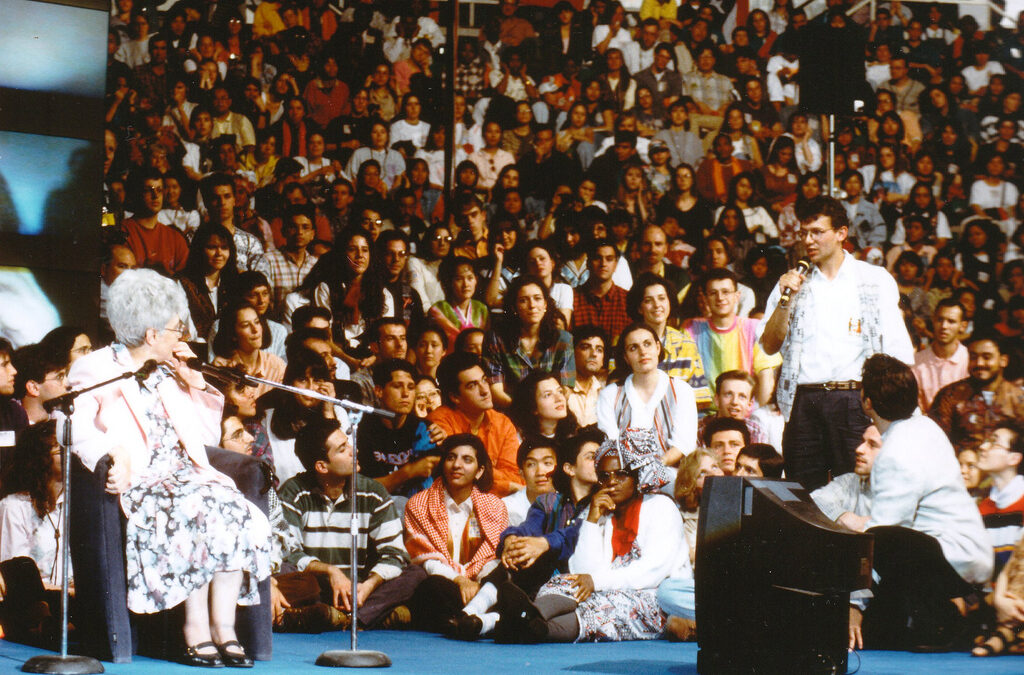
Mar 23, 2018 | Focolare Worldwide
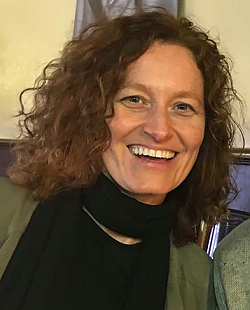
Michelle Sopala
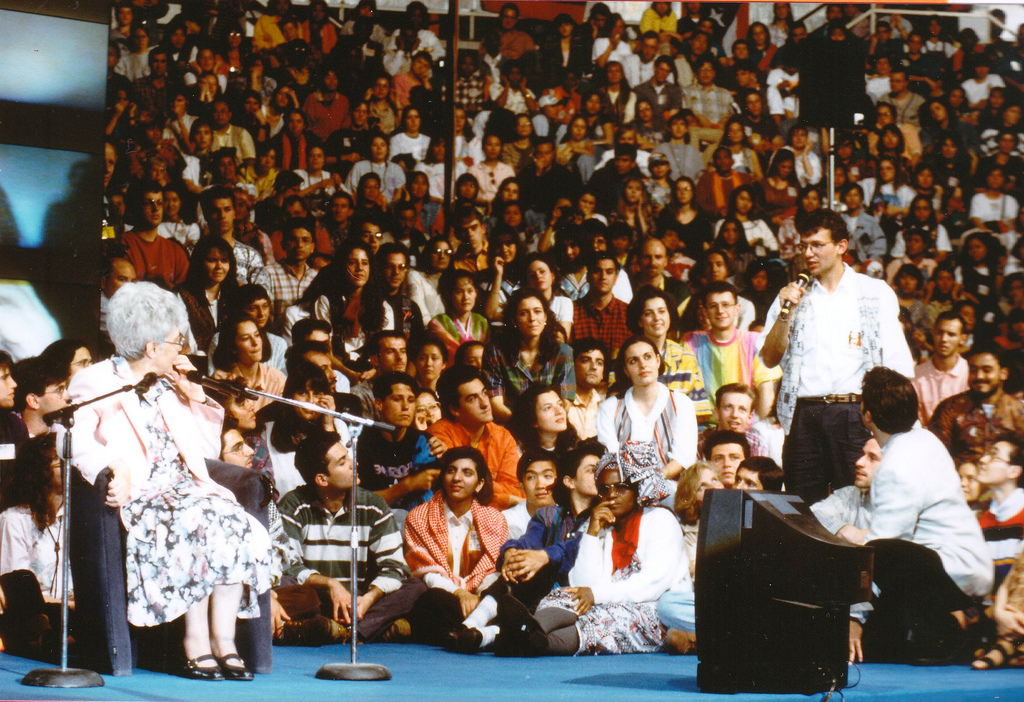 And now for the Genfest, itself! Even though it was a life-changing event in all its aspects, I can’t hide it: for me the highlight was the meeting with Chiara. I don’t know if the other 12 thousand young people in the arena felt the same, but I felt like Chiara was talking to me, and me alone. When Noel asked her the final question, «Chiara, from the bottom of your heart, what would you like to say to us young people?», her answer rang out like a war-call that still rings in my ears. With a super-astute intuition and understanding of what the young heart yearns for, she quoted St. Catherine who had told her disciples not to be satisfied with small things because “God wants them big!”. «You, young people – she said, with a conviction that went straight to the heart – don’t be satisfied with crumbs… with small joys… but aim high and seek the fullness of joy: that joy that comes from living out unity!» Hmm. For better or for worse, that’s been my experience ever since. “Unity”? A deep word that I’m still discovering after these 23 years. But that “fullness of joy”? Yep! I’ve found it! Oh! …and by the way, our performance was chosen. Take a look. Hope you like it! Michelle Sopala
And now for the Genfest, itself! Even though it was a life-changing event in all its aspects, I can’t hide it: for me the highlight was the meeting with Chiara. I don’t know if the other 12 thousand young people in the arena felt the same, but I felt like Chiara was talking to me, and me alone. When Noel asked her the final question, «Chiara, from the bottom of your heart, what would you like to say to us young people?», her answer rang out like a war-call that still rings in my ears. With a super-astute intuition and understanding of what the young heart yearns for, she quoted St. Catherine who had told her disciples not to be satisfied with small things because “God wants them big!”. «You, young people – she said, with a conviction that went straight to the heart – don’t be satisfied with crumbs… with small joys… but aim high and seek the fullness of joy: that joy that comes from living out unity!» Hmm. For better or for worse, that’s been my experience ever since. “Unity”? A deep word that I’m still discovering after these 23 years. But that “fullness of joy”? Yep! I’ve found it! Oh! …and by the way, our performance was chosen. Take a look. Hope you like it! Michelle Sopala
https://youtu.be/LX6rNkyGjoE
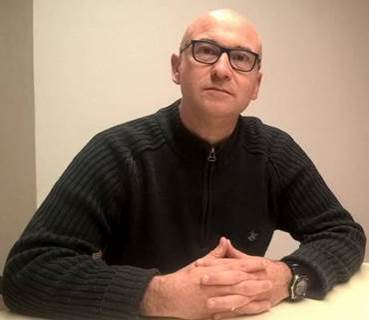
Mar 22, 2018 | Non categorizzato

Jonathan Michelon
https://twitter.com/twitter/statuses/976421224095076352
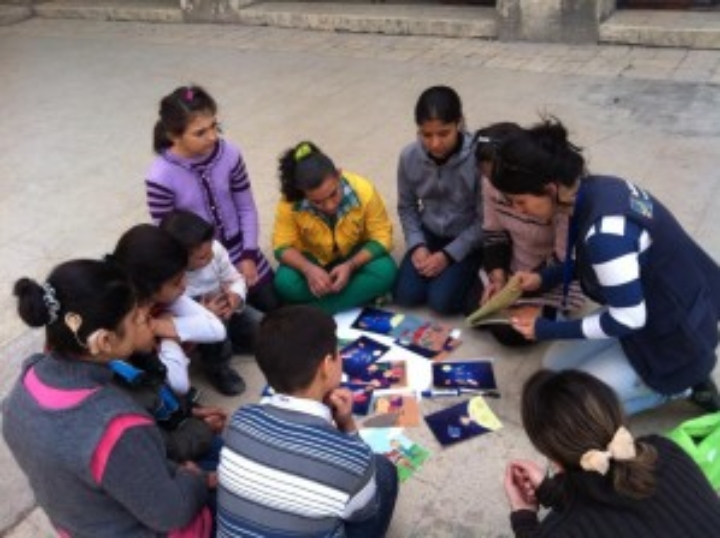
Mar 22, 2018 | Focolare Worldwide
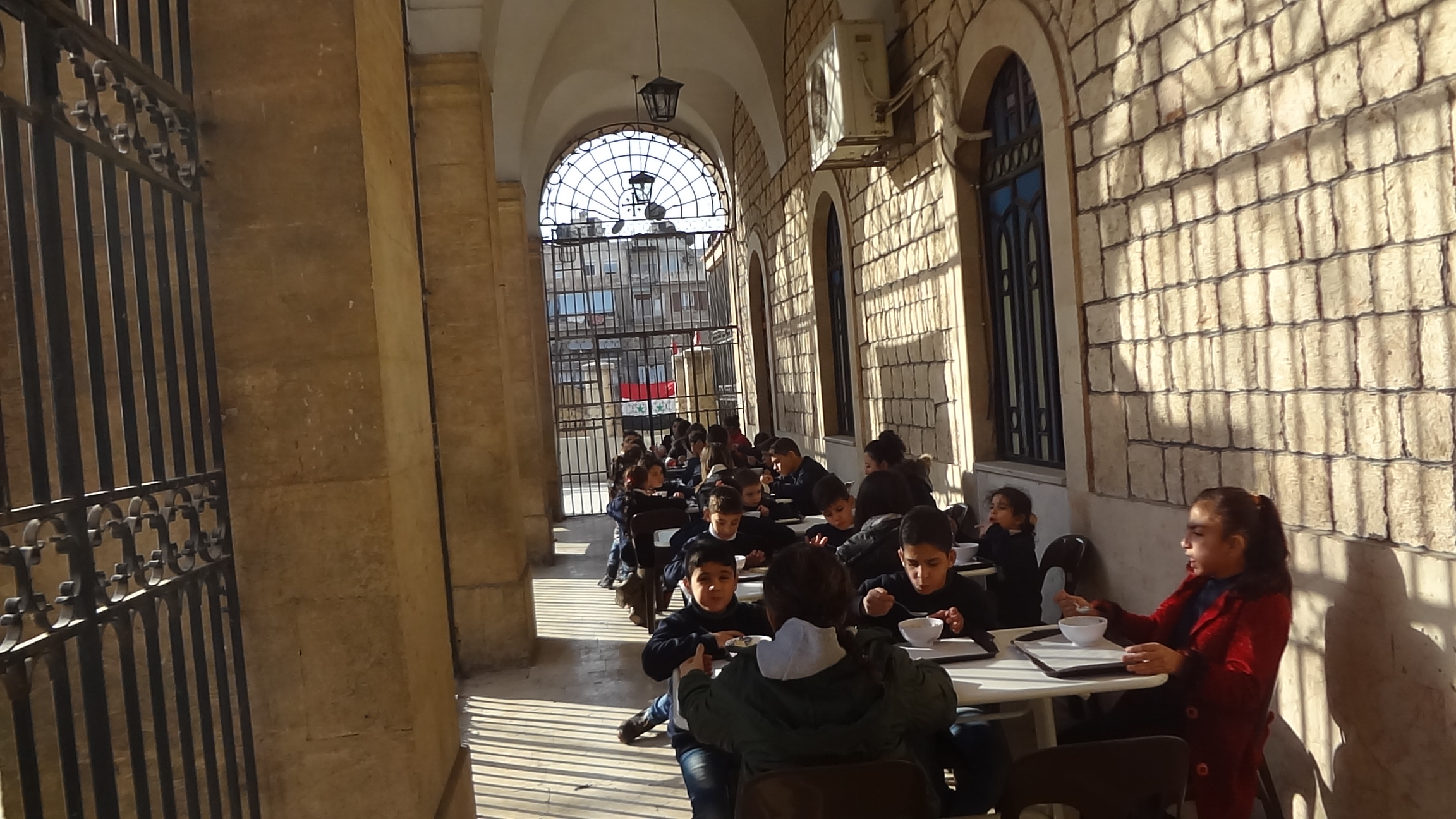 The story of Jean and Vivian is a story of love, hope and courage. They met in Aleppo, Syria, in 2000 while belonging to the Focolare Movement. Vivian is a widow with a one year-old son who is totally deaf. Jean is a carpenter and socially active. Their common commitment to living the Gospel and bringing the ideal of a united world to humanity brought them closer and, in 2003 they got married and have four children. Vivian’s first son, Marc, was the motivation behind their adventure. Because of his need for special care, Vivian went to Lebanon where Marc would later follow and stay at a centre run by the Focolare: “It’s really a foretaste of Heaven,” he says. “Living the Gospel in daily life accompanies the whole educational process. The children grow up in this oasis of peace and develop their talents while overcoming their handicap. The dream began to grow in me of setting up an institute myself, in my own city of Aleppo.” Jean supported him in his venture and, in 2005, their small centre was begun. Other larger ones would follow with larger capacity for up to ten children, all from poor families who couldn’t afford the cost. The centre was always in deficit: “Whenever we needed something,” Jean recalls, “we’d go in front of the crucifix and hand over our needs to Him. Providence arrived right on time every time.”
The story of Jean and Vivian is a story of love, hope and courage. They met in Aleppo, Syria, in 2000 while belonging to the Focolare Movement. Vivian is a widow with a one year-old son who is totally deaf. Jean is a carpenter and socially active. Their common commitment to living the Gospel and bringing the ideal of a united world to humanity brought them closer and, in 2003 they got married and have four children. Vivian’s first son, Marc, was the motivation behind their adventure. Because of his need for special care, Vivian went to Lebanon where Marc would later follow and stay at a centre run by the Focolare: “It’s really a foretaste of Heaven,” he says. “Living the Gospel in daily life accompanies the whole educational process. The children grow up in this oasis of peace and develop their talents while overcoming their handicap. The dream began to grow in me of setting up an institute myself, in my own city of Aleppo.” Jean supported him in his venture and, in 2005, their small centre was begun. Other larger ones would follow with larger capacity for up to ten children, all from poor families who couldn’t afford the cost. The centre was always in deficit: “Whenever we needed something,” Jean recalls, “we’d go in front of the crucifix and hand over our needs to Him. Providence arrived right on time every time.”  The breakout of the war in 2011 brought much death and destruction. Jean lost his carpentry, the centre wasn’t having any financial input and many were living on help from the Church and humanitarian organizations. Many left the country and, even though Jean and Vivian were tormented at the thought, they bought tickets to go. But one thing became clearer and clearer in their hearts: they couldn’t leave “their” deaf children and destroy that dream that had come true with so much effort. “On the night before our departure, I stepped into church,” Jeans says, “I had a deep conversation with Jesus, face to face, man to man. He seemed to speak in my heart and asked me not to go: what would the children now? I felt him posing this tragic question to me. I put my children in His hands. I went home and Vivian and I decided to rip up the tickets and stay in the city forever to be a help to the people who needed us.” “We were hopeful that God would accompany and support us in all our future projects and especially in our family,” echoed Vivian, “and that’s what happened.” Now the centre is their second home, their children also take part in the life of the group and Jean works full time “This community has widened our hearts. There is no longer boy or girl, student or teacher, healthy or handicapped, Muslim or Christian. We live in the one love and beneath the same gaze of a God-Love, incarnate, living in our midst.”
The breakout of the war in 2011 brought much death and destruction. Jean lost his carpentry, the centre wasn’t having any financial input and many were living on help from the Church and humanitarian organizations. Many left the country and, even though Jean and Vivian were tormented at the thought, they bought tickets to go. But one thing became clearer and clearer in their hearts: they couldn’t leave “their” deaf children and destroy that dream that had come true with so much effort. “On the night before our departure, I stepped into church,” Jeans says, “I had a deep conversation with Jesus, face to face, man to man. He seemed to speak in my heart and asked me not to go: what would the children now? I felt him posing this tragic question to me. I put my children in His hands. I went home and Vivian and I decided to rip up the tickets and stay in the city forever to be a help to the people who needed us.” “We were hopeful that God would accompany and support us in all our future projects and especially in our family,” echoed Vivian, “and that’s what happened.” Now the centre is their second home, their children also take part in the life of the group and Jean works full time “This community has widened our hearts. There is no longer boy or girl, student or teacher, healthy or handicapped, Muslim or Christian. We live in the one love and beneath the same gaze of a God-Love, incarnate, living in our midst.”
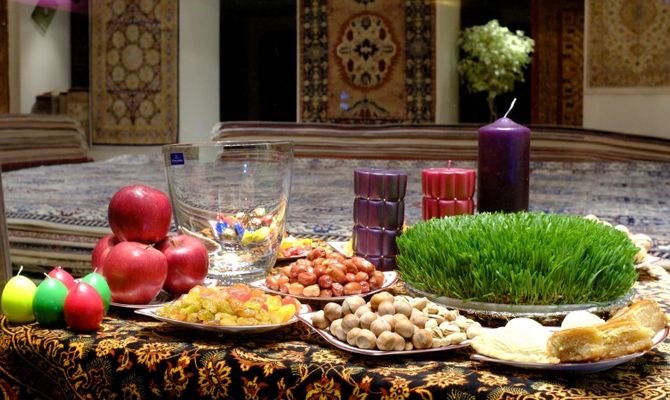
Mar 21, 2018 | Non categorizzato
 The celebration of the Persian New Year coincides with the vernal equinox which marks the beginning of spring, on 21 March, day in which many countries of Asia and Eastern Europe celebrate the feast of Nawroz (literally “new day”) proclaimed the international day of the United Nations which in 2009 was officially registered as an Intangible Cultural Heritage of humanity. Nawroz is an ancient, happy and joyous feast, estimated to be celebrated by 300 million people. Connected to the idea of the rebirth of nature, it is pervaded by a rich symbolism and promotes values of peace, reconciliation, solidarity between generations, friendship among families, peoples and communities.
The celebration of the Persian New Year coincides with the vernal equinox which marks the beginning of spring, on 21 March, day in which many countries of Asia and Eastern Europe celebrate the feast of Nawroz (literally “new day”) proclaimed the international day of the United Nations which in 2009 was officially registered as an Intangible Cultural Heritage of humanity. Nawroz is an ancient, happy and joyous feast, estimated to be celebrated by 300 million people. Connected to the idea of the rebirth of nature, it is pervaded by a rich symbolism and promotes values of peace, reconciliation, solidarity between generations, friendship among families, peoples and communities.



 Green and friendly
Green and friendly 









